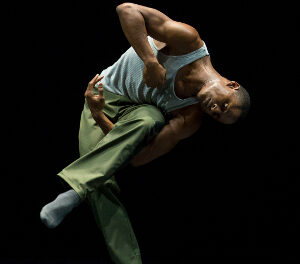With all the delicious melodies crammed into G.F. Handel’s Messiah, it’s as easy to get hooked on the masterful 1742 oratorio as it is to develop a craving for a yearly fix of Tchaikovsky’s The Nutcracker. It’s just not as easy to find a performance of the Handel that matches the stature of the music. Even growing up in New York, where the classics make deeper inroads on the airwaves, I didn’t become acquainted with the complete work until my freshman year in college – an ignorance that seems impossible with The Nutcracker, the world’s most popular ballet. When I can find an adequate excuse for reviewing Charlotte Symphony‘s annual Handel revel, I invariably do, as I did in 2005 when the Oratorio Singers of Charlotte Chamber Chorus (newly trimmed for the occasion) joined the Symphony and four guest soloists for the first performance of Messiah at Belk Theater. The 2010 edition marks the first time that Messiah has been presented at Knight Theater in the heart of the city’s bustling Levine Cultural Campus – and an opportunity to see how the Symphony has adjusted in the wake of the unsatisfactory acoustics that plagued their October debut in the new hall with Holst’s The Planets.
As I remarked then, the Symphony had lacked the foresight under a previous administration to grasp the synergy of the new Cultural Campus and the youthful excitement that the Knight could add to their audience outreach. So a bandshell was excluded from the original building plans, an omission that became painfully apparent the first time the Symphony performed there.* Although they didn’t return with a finished enclosure, the Symphony proved that they had learned their lesson. A phalanx of acoustic deflectors was arrayed across the upstage where the Oratorio Singers stood, arching over their heads, and two pairs of deflectors flanked the orchestra, keeping the sounds of the strings from escaping into the wings.
While the visual impact of these acoustic refinements was far from elegant, offering us a prospect that looked like the blunt tines of a hugely magnified electric barbershop trimmer, the sonic improvement was extraordinary. The sharpening of the noisome reverb we had heard in October yielded a sound-field that was less like a church – or even a theater – and more like a recording studio. Compared with the 2005 chorus, the 85-member Oratorio Singers seem substantially beefed up, dropping the Chamber Chorus diminutive this time around, and under the direction of Scott Allen Jarrett, the Symphony was trimmed to exactly the right size to balance the vocalists.
The hall, seating 1150, did seem awfully small as we sat ourselves down before the largest aggregation of performers to ever perform at the Knight. Misgivings that we might be overpowered by Handel’s fortissimos were allayed when we reached the first full-throated chorus, “For unto us a Child is born,” and its thunderous “Wonderful, Counselor” proclamations. More encouraging, the enlarged Oratorio forces sounded no less lithe, nimble, and joyful than the trimmer chamber group, even though Jarrett and the Symphony seemed to be pushing the tempo more briskly.
Guest soloists were as equal to the occasion as an altogether different group had been at the Belk in 2005. Mezzo-soprano Krista River, in her first Charlotte Messiah since 2006, consistently glittered in the alto airs and recitatives, particularly in a festive “O, thou that tellest good tidings to Zion” split with the chorus. Among the more lugubrious airs, her “He was despised and rejected” was the most affecting. Even more formidable was the Symphony debut of baritone Jesse Blumberg, who nearly equaled the éclat Richard Zeller created five years ago with the bass solos. The force and flexibility of his early “I will shake all nations” recitative whetted my appetite for the crowning airs to come. Nor was I disappointed when we reached the agitated “Why do the nations so furiously rage together,” accelerated to stampede speed by Jarrett, and the magnificent “The trumpet shall sound,” where Blumberg exchanged volleys with principal trumpeter Karin Bliznik.
While soprano Marie-Eve Munger lacked the sparkling clarity of the best Messiah soloists I’ve heard, she was more than supple enough for an accelerated “Rejoice greatly, O daughter of Zion” and gave a sturdy account of the poignant “I know that my Redeemer liveth.” And if there was a question whether tenor Aaron Sheehan made as thrilling a first impression as William Hite in the soaring “Ev’ry Valley Shall Be Exalted,” he handled the long interval between his showpieces with greater aplomb, excelling in the pivotal “Thou shalt break them with a rod of iron,” immediately preceding the climactic “Hallelujah” chorus.
The mighty choruses usually get all the ink lavished upon Messiah, so perhaps it’s best to draw music lovers’ attention to the lightness – as well as the fleetness – that Jarrett and the Oratorio Singers bring to the calmer chorales, including “And the glory of the Lord shall be revealed,” “And he shall purify,” and “All we like sheep.” Contrapuntal filigree percolates with an infectious enthusiasm and unfailing precision. It can truly be said that this Messiah rejoices greatly.
The Charlotte Symphony and the Oratorio Singers of Charlotte repeat their performance of Messiah on Tuesday, December 21. See our calendar for details.
*December 20, 2010: A correction, offered by the CSO: “Original plans for the Knight Theater did in fact include an orchestra shell. The shell was cut from the Cultural Facilities project to keep the project on budget, much to the dismay of the Charlotte Symphony. The Symphony and other cultural partners are working together to secure funding for an orchestra shell as soon as possible. – Meg Whalen, Director of Public Relations, Charlotte Symphony”











